STONEHAM — Brandon Brichetto was 13 when he realized the electricity sometimes shut off in his family’s Westbrook apartment because there wasn’t money for the utility bill.
Julia McClure, 22, had the same experience in Waldoboro with her family, which she described as loving, but one that was “at the poverty line. Our house was very small.”
Both said it was at Camp Susan Curtis where they learned to believe in their abilities and the prospect of earning a college degree.
“Life was tough at home growing up. I had to do a lot on my own. I had to be independent,” said Brichetto, now 21.
For Dakota Warren, 20, of Buckfield, the camp means even more. She was at Camp Susan Curtis as a 12-year-old when she received some wonderful news.
“I started here when I was 8. My home situation was not super great,” said Warren, now the aquatics director at Camp Susan Curtis. “I went into a foster home when I was in fifth grade. I was in two different foster homes. I remember I was at the (camp’s) baseball field when I was told my foster family wanted to adopt me. I was excited that the mom I came home to, I could now call mom.”
The summer camp at the foothills of the western Maine mountains provides two weeks of outdoor activity for 500 Maine young people each summer. But it’s much more than a place that offers swimming, canoeing, fishing and camp songs. For more than 40 years, it has provided free educational programs to help disadvantaged youth gain confidence and the skills necessary to aspire to successful careers.
Camp Director Terri Mulks said every camper comes from an economically disadvantaged home, and in many cases experience other challenges.
“They lack opportunities. Some are on the autism spectrum. They don’t have a lot of assistance. Or they don’t have anything to do after school. Sports can be expensive,” Mulks said.
Executive Director Melissa Cilley said it can be even worse than that.
“Some are dealing with unemployment in the home, incarceration, food insecurities or violence,” Cilley said.
Camp counselors use outdoor-skills classes and activities to build self-esteem, and the drive to set goals and achieve them.
And every camper is welcomed back the next year, assuming their family still qualifies.
The camp grew out of the non-profit foundation formed in 1971 when the daughter of then Gov. Kenneth Curtis died of cystic fibrosis. The Curtis family helped to create the Susan L. Curtis Foundation to help Maine youth overcome the effects of poverty. The camp, set beside the White Mountain National Forest, opened in 1974.
Year after year, alumni go on to college and careers they never imagined before attending the rustic retreat.
Brichetto has attended or worked at the camp every year but one since he was 10. That summer, Brichetto, then 17, worked two jobs to afford a car for college.
“If I didn’t have a car, I don’t think I would have gone to college that fall. It was stressful,” Brichetto said.
He bought the car and went on to earn an associate’s degree as a paramedic at Southern Maine Community College. Brichetto is now a member of the Westbrook Fire Department and working on his bachelor’s degree at the University of Southern Maine. He still works at the camp.
McClure, who first came to the camp when she was 9, just graduated with a dual major from St. Anselm College and is his heading to work as a volunteer teacher in New York. McClure, who described herself as a painfully shy child growing up, can’t wait for the challenge.
Warren is studying at USM to be an aquatic therapist.
“I didn’t know about the University of Southern Maine, which sounds crazy now since so many people go there. I learned about it through camp,” Warren said.
Last week, campers who were initially shy to share their camp experience ended up gushing about it.
Madison Long, 12, of West Paris has been coming for five years. She called it the best part of her year. The counselors at camp are a big reason why, she said, because they teach in a “kind way.”
“They don’t give you a demand or boss you,” Long said. “And they let you back, as long as you follow the rules, which are not very hard. You have to be able to have everyone respect you, and not do bad things. It’s actually quite simple. You just have to think before you act.”
Seth Labrecque, 14, of Naples was at Camp Susan Curtis last week for the first time. He didn’t want to go when his mother first told him. But when she listed all the outdoor activities, Labrecque thought he’d try it. After three days, Labrecque said he wanted to return next year.
“This is a special place,” he said. “Every morning they give us a message and then at night when we take the flag down we review it. Today it was, ‘Think before you speak.’ Yesterday it was, ‘Everyone can contribute.’ That means a lot. It means we all can share our ideas. That’s cool.”
Send questions/comments to the editors.


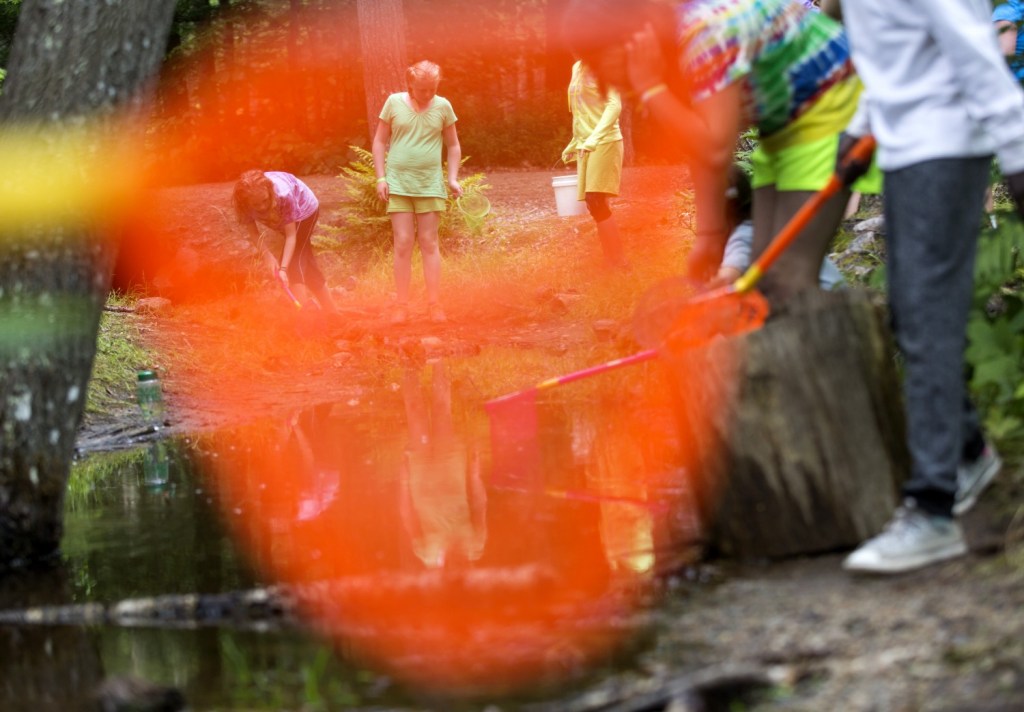
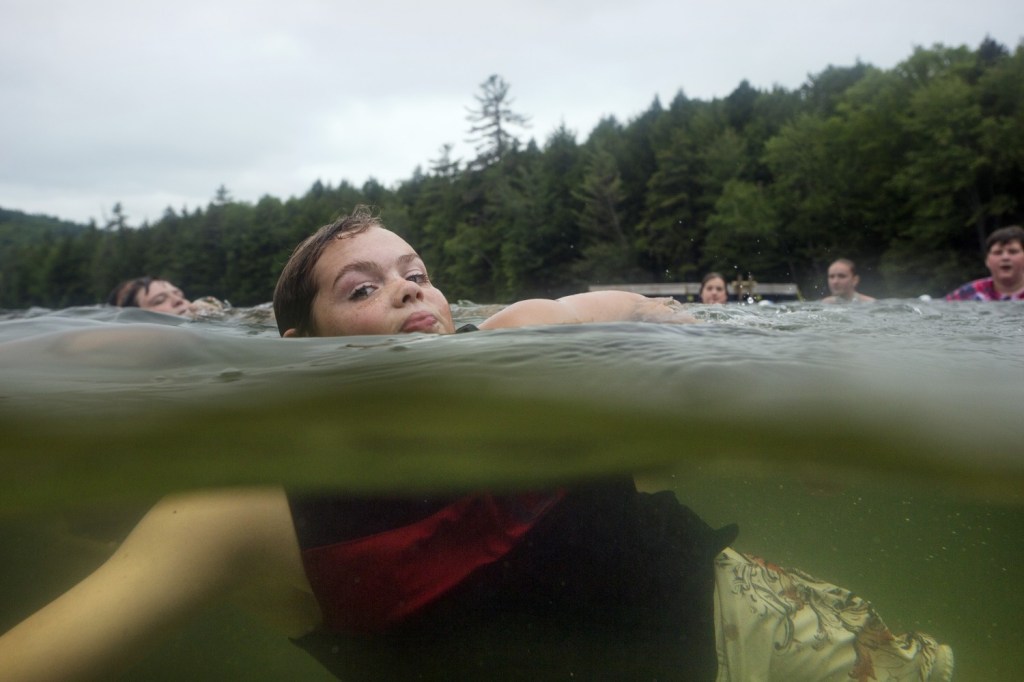
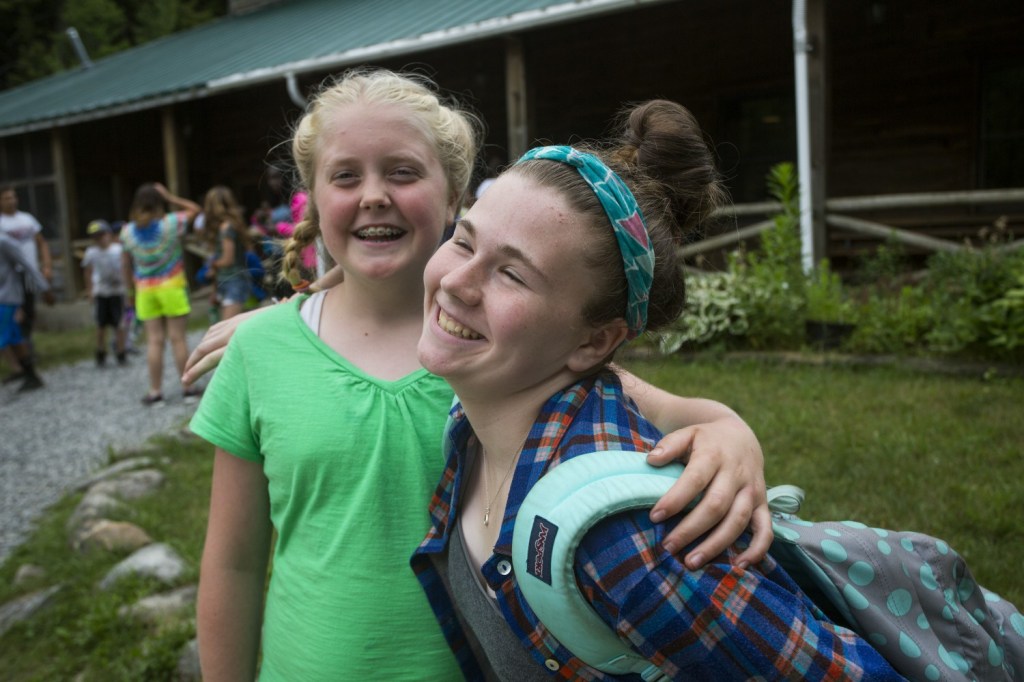
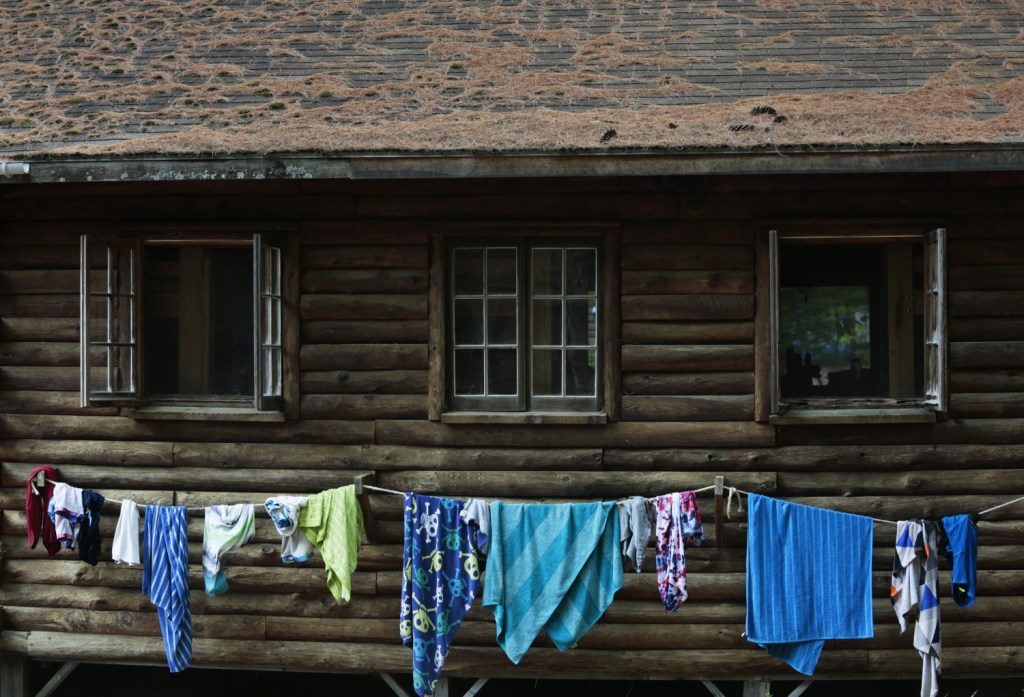
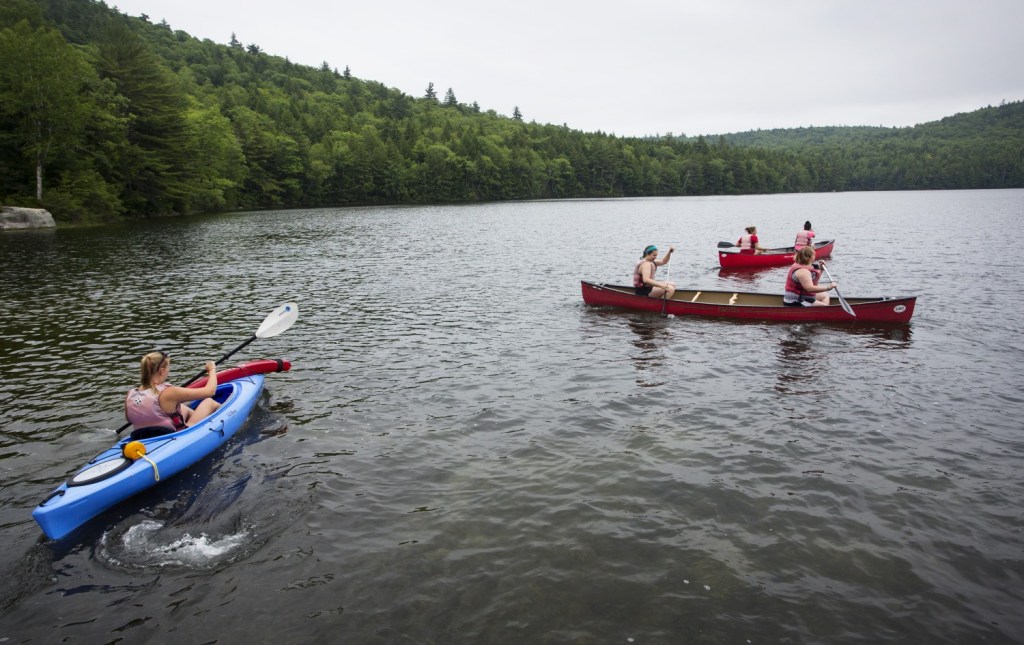

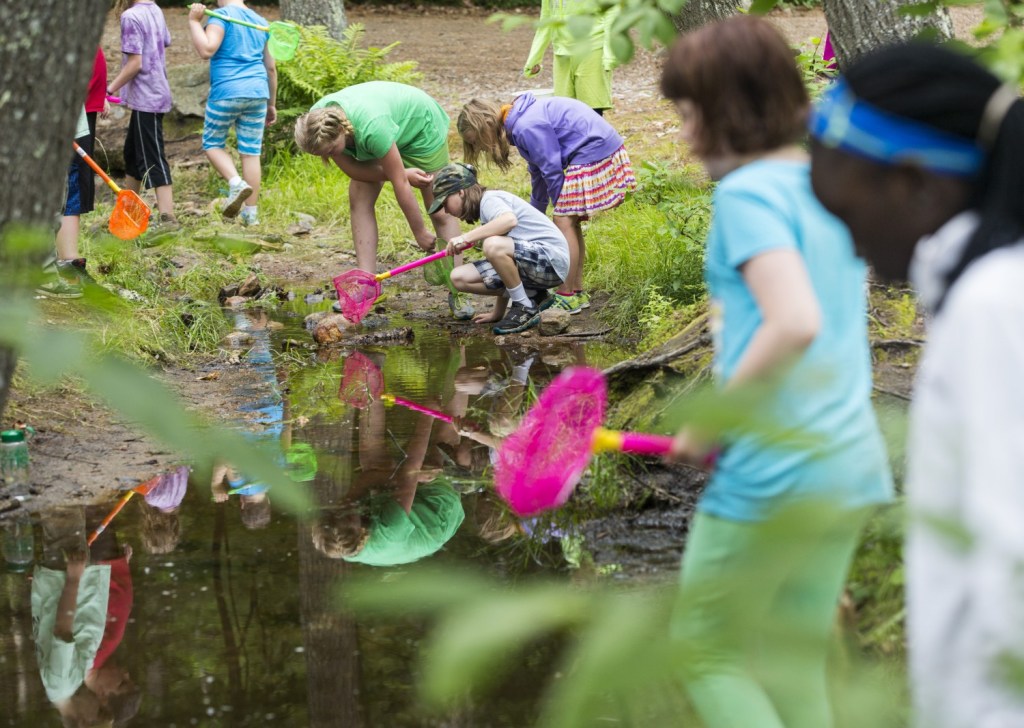


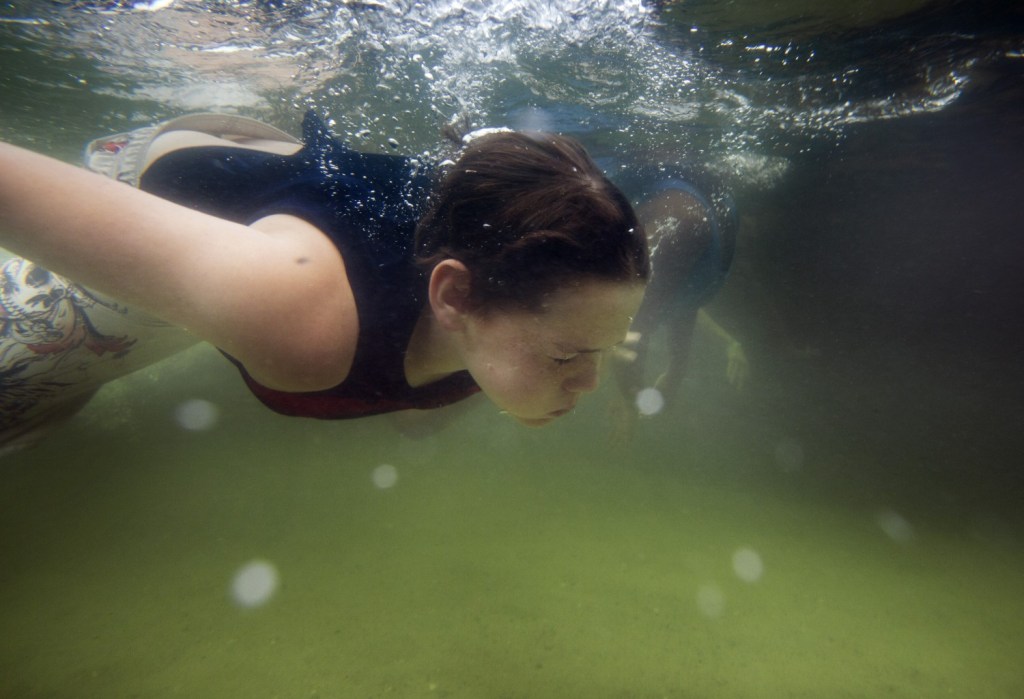
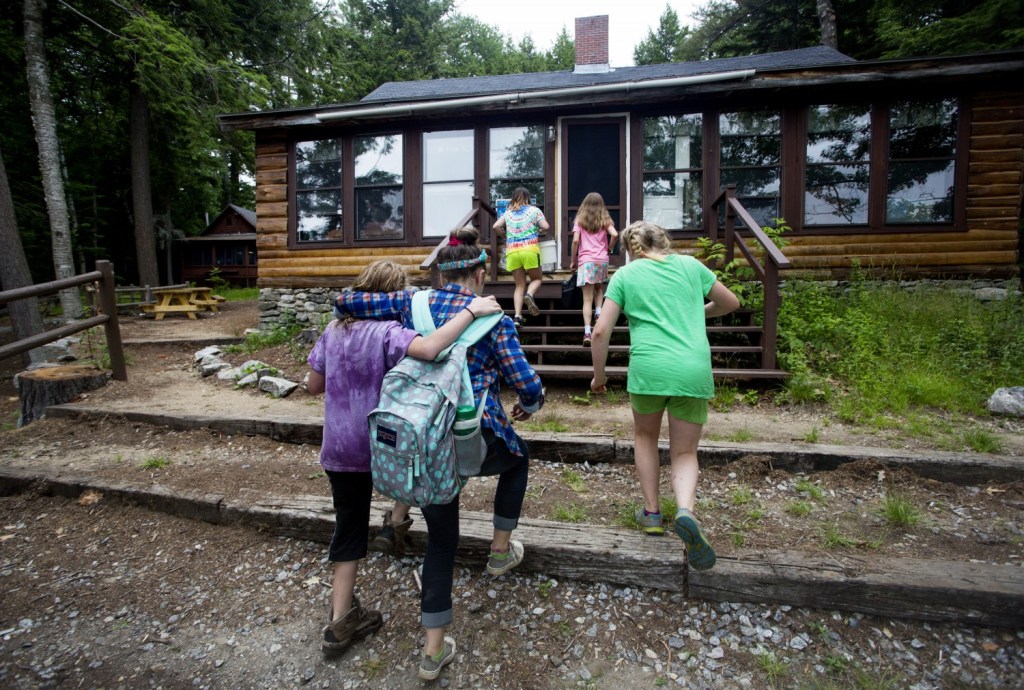

Comments are no longer available on this story